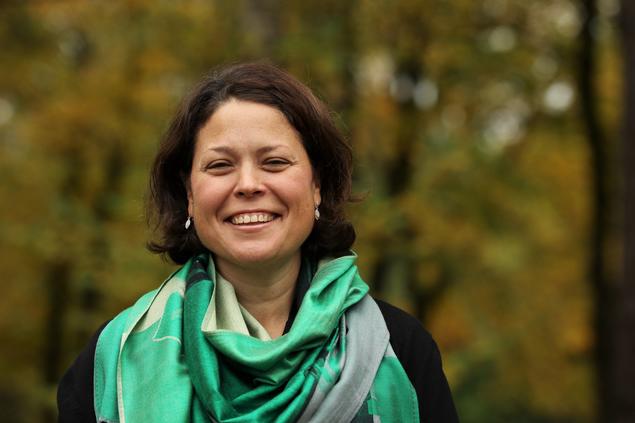New senior researcher to FNI

Kendra Dupuy has recently been employed in a new position as a senior researcher at FNI. She will be working on the Include project, where researchers find out how to achieve a just energy transition in Norway.
Hi Kendra Dupuy, and welcome to FNI. Tell us a little about yourself, please.
‘I’m a political economist, with a focus on energy transitions. My background includes natural resource management and environmental politics. Oh, and I hold a PhD in political science from the University of Washington.’
How did you end up at FNI?
‘After a long career in academia, I had taken a new road working with Norwegian People’s Aid (Norsk Folkehjelp) for a couple of years. But I missed the analytical work involved in a job as a researcher, and decided to surf a bit on finn.no. That is where I found the job!’
What? So you weren’t contacted or headhunted in any way?
‘No. Finn.no works!’ she smiles, ‘In fact, I knew of FNI because I used to live in the area, and had seen the signs and looked it up.‘
Distinguished researcher or not , Kendra Dupuy radiates energy, and has a smile with dimples that keep popping out.
‘I really wanted to work with socio-economic research connected to climate change and environmental politics, so when I saw this position advertised, it was just yes, yes, yes!’
Prior to her work at FNI and Norwegian People’s Aid, Dupuy spent many years with the Peace Research Institute Oslo (PRIO) and the Chr. Michelsen Institute. She brings valuable experience to FNI, while also keeping in touch with her former employers. She has experience within both applied and basic research.
‘I know how to engage with policymakers, and I know the pressure they are under when I come to talk to them about the effects of climate change and resource management’ (that smile again!).
What will you be doing at FNI?
‘Here, I’m part of the big interinstitutional research project ‘Include: Research Centre for Environmentally-friendly Energy’. We will help to find out how to achieve a just energy transition in Norway. How to ensure the green shift doesn’t lead to more inequality? You might think there aren’t any really poor people in Norway, but you know – that is simply wrong. And the people who are not well off, they might have to pay the price for our decarbonization’, she stresses. ‘When you don’t have much money, there will be trade-offs. You might have to choose between paying your electricity bill and having a warm meal.’
During her time with Norwegian People’s Aid, she learned that green solutions that are easily applicable in urban areas can be very difficult to implement in rural areas.
‘With really remote areas, it is almost impossible to rely on an electric vehicle, for example’, she explains.
From PRIO Dupuy also has experience to lean on when she will be asking why people get upset about green energy projects. ‘Yes, I’ve been studying this – but from an African perspective’, she says with a broad smile. ‘You know – their view is negative, there’s local pollution, they really feel that they are not better off. With my experience from Africa, it’s going to be really interesting to see what this will look like from a Norwegian perspective.’
In Include, Dupuy and her colleagues will be studying the human and social angles of the energy transition:
‘If Hydro wants to build a battery factory – how do they make the decisions? How do they assess costs and benefits? Energy studies have been so technical – but now, with Include, we’ll finally get to find out what it’s like for people. We will study the people who will have to make difficult choices, for instance, about their own health. I hope we get to share their stories.’
